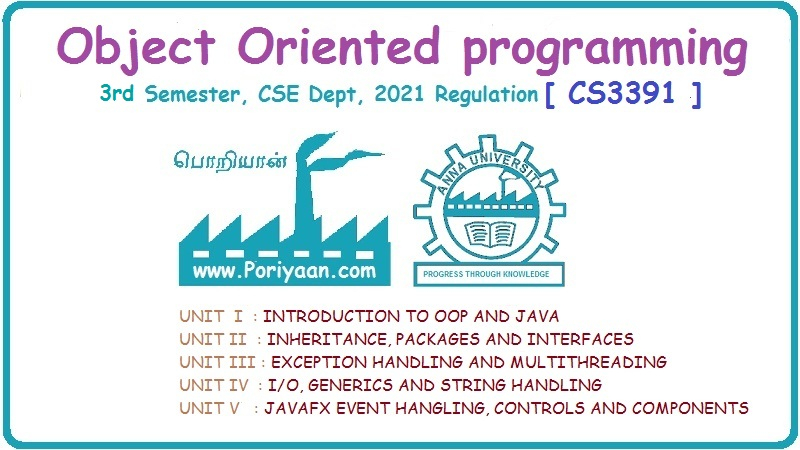Object Oriented Programming: Unit III: Exception Handling and Multithreading
Multiple Catch Clauses
with Example Exception Handling Java Programs
It is not possible for the try block to throw a single exception always.There may be the situations in which different exceptions may get raised by a single try block statements and depending upon the type of exception thrown it must be caught.
Multiple catch Clauses
• It is
not possible for the try block to throw a single exception always.
• There
may be the situations in which different exceptions may get raised by a single
try block statements and depending upon the type of exception thrown it must be
caught.
• To
handle such situation multiple catch blocks may exist for the single try block
statements.
• The
syntax for single try and multiple catch is -
try
{
...//exception
occurs
}
catch(Exception_type
e)
{
...//exception
is handled here
}
catch
(Exception_type e)
{
...//exception
is handled here
}
catch(Exception_type
e)
{
...//exception
is handled here
}
Example
Java Program[MultipleCatchDemo.java]
class
MultipleCatchDemo
{
public
static void main(String args[])
{
int all =
new int [3];
try
{
for (int
i = 1; i <=3; i++)
{
a[i] = i
*i;
}
for (int
i = 0; i <3; i++)
{
a[i] =
i/i;
}
}
catch
(ArrayIndexOutOfBoundsException e)
{
System.out.println
("Array index is out of bounds");
}
catch
(ArithmeticException e)
{
System.out.println
("Divide by zero error");
}
}
}
Output
Array
index is out of bounds
Note: If we comment the first for
loop in the try block and then execute the above code we will get following
output
Object Oriented Programming: Unit III: Exception Handling and Multithreading : Tag: : with Example Exception Handling Java Programs - Multiple Catch Clauses
Related Topics
Related Subjects
Object Oriented Programming
CS3391 3rd Semester CSE Dept | 2021 Regulation | 3rd Semester CSE Dept 2021 Regulation
